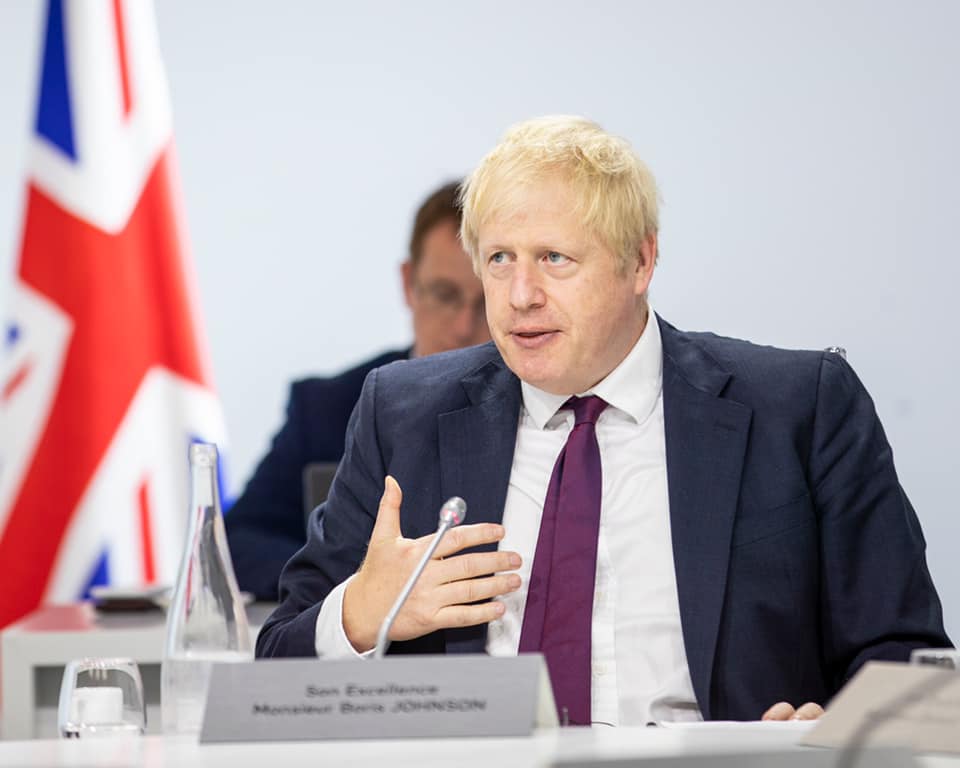
MANCHESTER, England — U.K. Prime Minister Boris Johnson faced political opposition and personal allegations Monday as he tried to fulfil his pledge to lead Britain out of the European Union in just over a month.
As he tried to energize Conservative members and lawmakers at the party’s annual conference, Johnson was forced to deny a journalist’s claim that he had grabbed her thigh at a private lunch two decades ago.
Sunday Times columnist Charlotte Edwardes says the incident took place when she worked at The Spectator, a conservative newsmagazine, while Johnson was its editor.
Asked Monday if the allegation was true, Johnson said: “No.”
Edwardes stood by her story, tweeting: “If the prime minister doesn’t recollect the incident then clearly I have a better memory than he does.”
Johnson also is under scrutiny for claims that an American businesswoman, Jennifer Arcuri, received money and perks from London coffers while Johnson was mayor of the British capital.
He also denies wrongdoing over Arcuri, who was given grants and places on overseas trade trips for her small tech start-up, saying everything was done “with full propriety.” The case has been referred to Britain’s police watchdog, which will decide whether to investigate Johnson for misconduct in a public office.
Johnson has vowed that Britain will leave the European Union on the scheduled date of Oct. 31, with or without a divorce deal governing future relations with the bloc. His foes in Parliament are determined to avoid a no-deal exit, which economists say would plunge Britain into recession.
The personal allegations overshadowed the Conservative Party’s four-day annual conference in Manchester, northwest England, where Johnson is trying to rally the party — and prepare for an election that could come within weeks — under the slogan “Get Brexit Done.”
Johnson denied the claims of misconduct were a distraction.
“I think what the public want to hear is what we are doing to bring the country together and get on with improving their lives,” he said.
The conference follows a tumultuous week for a leader who has only been in the job since July. Last week the U.K. Supreme Court declared that Johnson’s attempt to suspend Parliament for five weeks was illegal. He cut short a trip to the United States, racing home to face the House of Commons, where lawmakers greeted him with cries of “Resign!” He then lost a vote on a normally routine matter — a request to adjourn for a week so that Conservatives could attend their conference.
Johnson was also accused of inflaming tensions in Britain with populist, people-versus-politicians rhetoric. He branded an opposition law ordering a Brexit delay as the “Surrender Act” and said postponing the country’s departure would “betray” the people who voted to leave the EU. He also dismissed the complaints of some opposition lawmakers who reported they have received death threats.
Johnson later claimed he had been “a model of restraint.”
The leaders of Britain main opposition parties, who want to prevent a no-deal Brexit, were meeting in London on Monday to plot their next move. They could try to topple the government with a no-confidence vote this week.
In the meantime, Johnson himself was again the plot line.
Treasury chief Sajid Javid said Monday he had “full faith in the prime minister,” adding: “I don’t think it’s a good idea to get drawn into personal allegations.”
But Health Secretary Matt Hancock said he knew Edwardes and “I entirely trust what she has to say.”
And Justine Greening, a former Conservative minister who was expelled from the party in Parliament for backing opposition attempts to stop a no-deal Brexit, said the allegations were “deeply concerning.”
“They go to the heart of this question about character and integrity of people in public life and what standards the electorate have a right to expect,” she said.